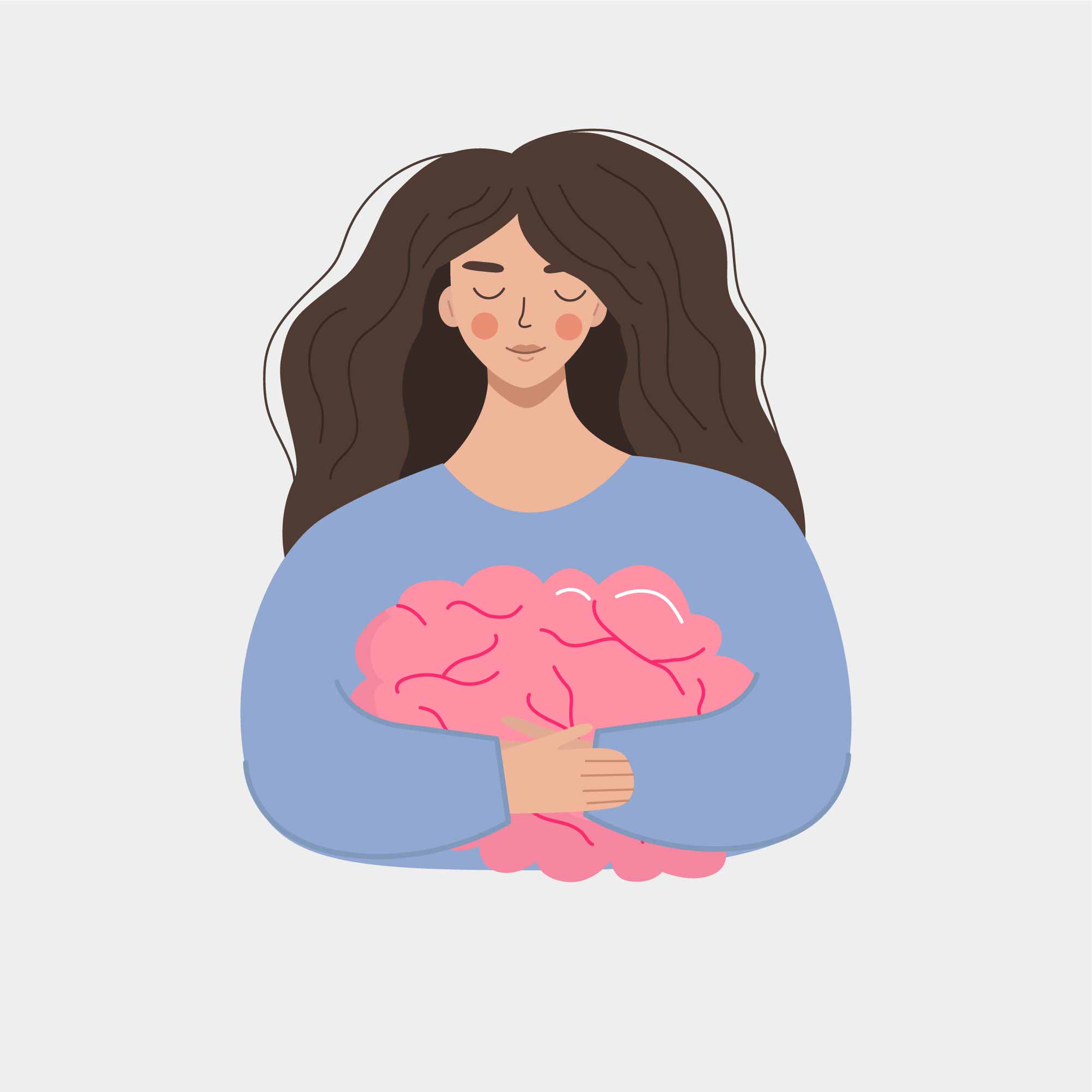We are dedicating this month’s issue to mental health awareness as 10th October is ‘World Mental Health Day’. When I had volunteered to write this month’s editorial, I was confident that this is something that I can easily write about, but when I started to write, I was hit by the same thoughts that hit most people when they want to open up about their mental health. It was the same reason for keeping the messages anonymous for the share-your-feelings box before the Appreciation Day (that we celebrated on 19th September), which is how people would perceive someone after getting to know about their depression or mental health issues. Would they show empathy or would they treat them as a weirdo, and call them names like – mad, crazy, pagal – the most common word that is used to describe all mental health and brain illnesses (neuropsychiatric to neurodegenerative) in our country?
While lost in these thoughts and looking at studies talking about the way perception of time, visual contrast, and taste change with depression, although requiring repeated studies by others to be formulated into diagnostic tests, I stumbled upon an article that talked about ‘depressive realism’. Suddenly, I had words for all the negativity, insecurities, and fears that had surrounded me for so long. Fancy psychology terms like dichotomous thinking, catastrophic thinking, and selective abstraction, explained my behaviour which had been tagged as being ‘over-sensitive’ and an ‘overthinker’ who would always jump to the worst possible outcome. Yet, it was not enough to know that ‘the way I perceive the world’ is just a symptom of depression. What eventually made me feel better about myself was the ‘depressive realism’ hypothesis. It states that people who are depressed are actually more in touch with reality rather than the ones who are non-depressed. The question then arises, who is crazy after all? However, I do not want this editorial to be a class in psychology. Although it would be an interesting concept to debate on albeit not with the ones who are depressed.
One can still hide one’s thoughts but when there are physical symptoms associated with mental health issues then it is not possible to hide it anymore. Anxiety with or without palpitations can be debilitating for many. It took me years to feel grateful for being able to come out of the anxiety that had been a constant companion for as long as I can remember. Post recovery, my only fear had been what if I had a relapse. The knowledge that I might have to live on medications for the rest of my life had shattered me until I felt grateful that there are medications to treat depression and anxiety. I had never thought that I would actually hope, after seeing my father’s MRI and his first consultation with a neurologist, that his condition be a psychiatric one and not neurodegenerative. The irony was that his dementia made me feel grateful towards the SNRIs, serotonin norepinephrine reuptake inhibitors – a class of antidepressants, that I have been taking.
I am talking about (my) mental health issues in this editorial but is there even a need to celebrate World Mental Health Day within a research institute as awareness about mental health issues already exists amongst researchers (some of whom are engaged in research that indirectly touches upon neurological disorders if not neuropsychiatric)? I am glad to share, having experienced first hand, that this awareness has ensured the creation of an environment where there is no stigmatization and instead empathy exists towards anyone who is facing any mental health issue. It may, therefore, appear that there is no need of creating any awareness here, but I have also realised with time that it is indeed required. Although, a different kind of awareness is needed, something which can sensitise individuals towards one’s own mental health issues, as there already exists empathy towards others (mental health issues). And it saddens me to see that their empathy vanishes as soon as it is ‘them’ who are suffering from anxiety or depression. The logic and science of how anyone can have depression is forgotten and they want to just fight it on their own. It is to all those individuals who might have forgotten to care for themselves, I want to remind them that they too are entitled to seek help and it does not make them weak to see a psychiatrist or take pills to remain sane (or insane?).
Many people might be thinking of the recent studies that disproved the serotonin hypothesis of depression. It is the hypothesis that decreased serotonin levels in the brain are the cause of depression and therefore, SSRIs or serotonin reuptake inhibitors are the first antidepressants to be prescribed mostly. My take is that the mysteries of the brain are yet to be solved and our ignorance will reduce with time. Even if I would not be the one to see what causes depression, I would at least live a major part of my life without it because of the current medical support that is available.
Edited by Neelanjan Chakraborty
Poorti Kathpalia, a scientist by training, is now pursuing her passion for making science fun and accessible through her sci-comm activities.


